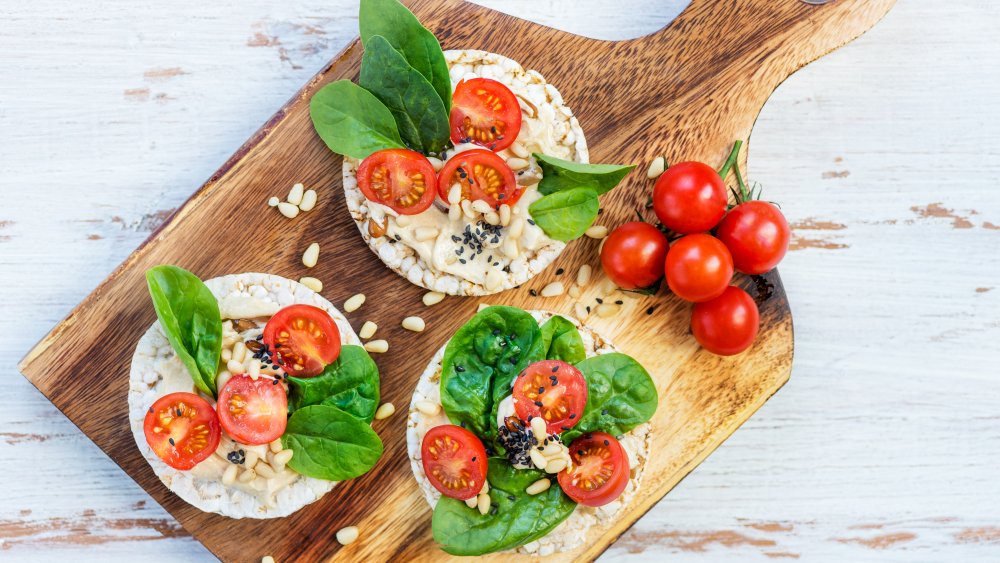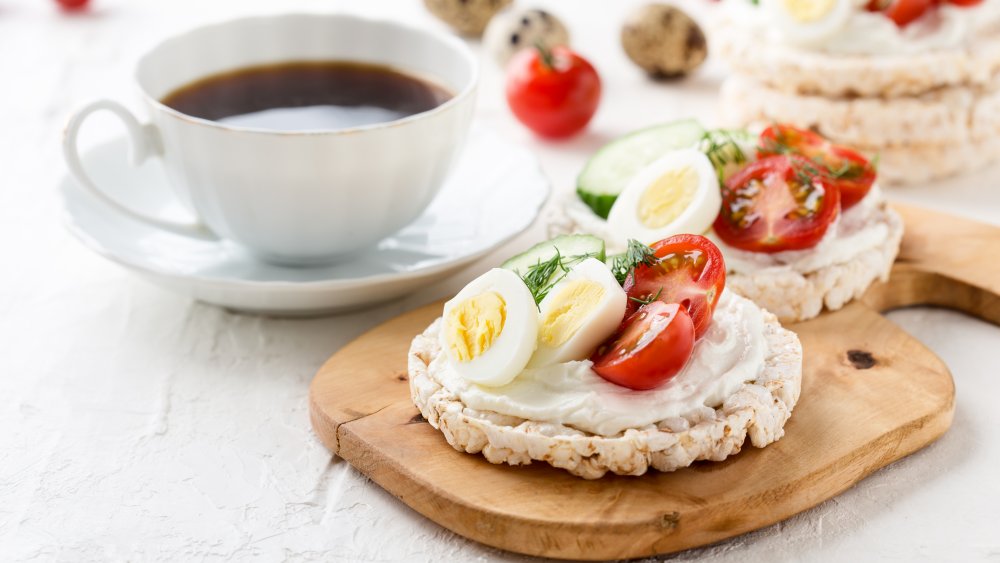Are Rice Cakes Actually Good For You?
You might be surprised to find out that rice cakes have been around for quite some time. In fact, rice cakes originated in a soft form around 710 to 794 A.D. in Japan, where rice is a food staple of the country.
Their popularity grew and evolved over time and across many different countries. Fast forward a few centuries, and the packaged rice cakes that line the shelves of our kitchen pantries today are similar to rice-bearing pancakes, also known as British rice griddle cakes (via Food.). Rice cakes are an amazingly simple product that requires puffed white or brown sticky rice, salt, and various flavorings to produce what we find in the super market (via How Products are Made).
Some people think they taste like cardboard, but others enjoy their texture and taste. Perhaps the simplicity of rice cakes has made them a go-to snack for health-conscious eaters and dieters alike. Most often, fans of the crispy cake will eat it in place of bread or crackers to help cut down on fat and calories, which makes sense when you consider a single rice cake can contain as little as 35 calories per cake and a miniscule amount of fat (via Healthline).
But are rice cakes healthy and are they a healthy option for the food they are replacing?
Rice cakes and their nutritional value
Rice cakes seem like a healthy alternative to breads and crackers, but are they really? Rice cakes may actually be masquerading as a "health food," especially when you start to compare their nutritional value to that of bread. Sure a rice cake is lower in calories, but it is also less food overall. Two rice cakes are the equivalent of 18 grams of food while two slices of bread are approximately 56 grams.
Based on this information alone, in a gram for gram comparison, rice cakes actually have more calories. Rice cakes also have no fiber whereas bread has around three grams. In fact, rice cakes are really nothing more than carbohydrates which means once you eat a rice cake, it is digested and quickly converted to sugar. On the glycemic index, which ranks carbohydrates in foods by examining how they raise blood glucose levels, rice cakes come in at an astounding 82. Compare that to sugar cane which ranks at 100 and the picture starts to come into focus (via My Fitness Pal). To curtail that sugar spike, My Fitness Pal suggests eating your rice cake with some hummus or meat and cheese on top.
Bottom line: rice cakes aren't necessarily the most nutritional food, but if you enjoy eating them, there's no reason to stop — but keep in mind that they're not a "health food."

